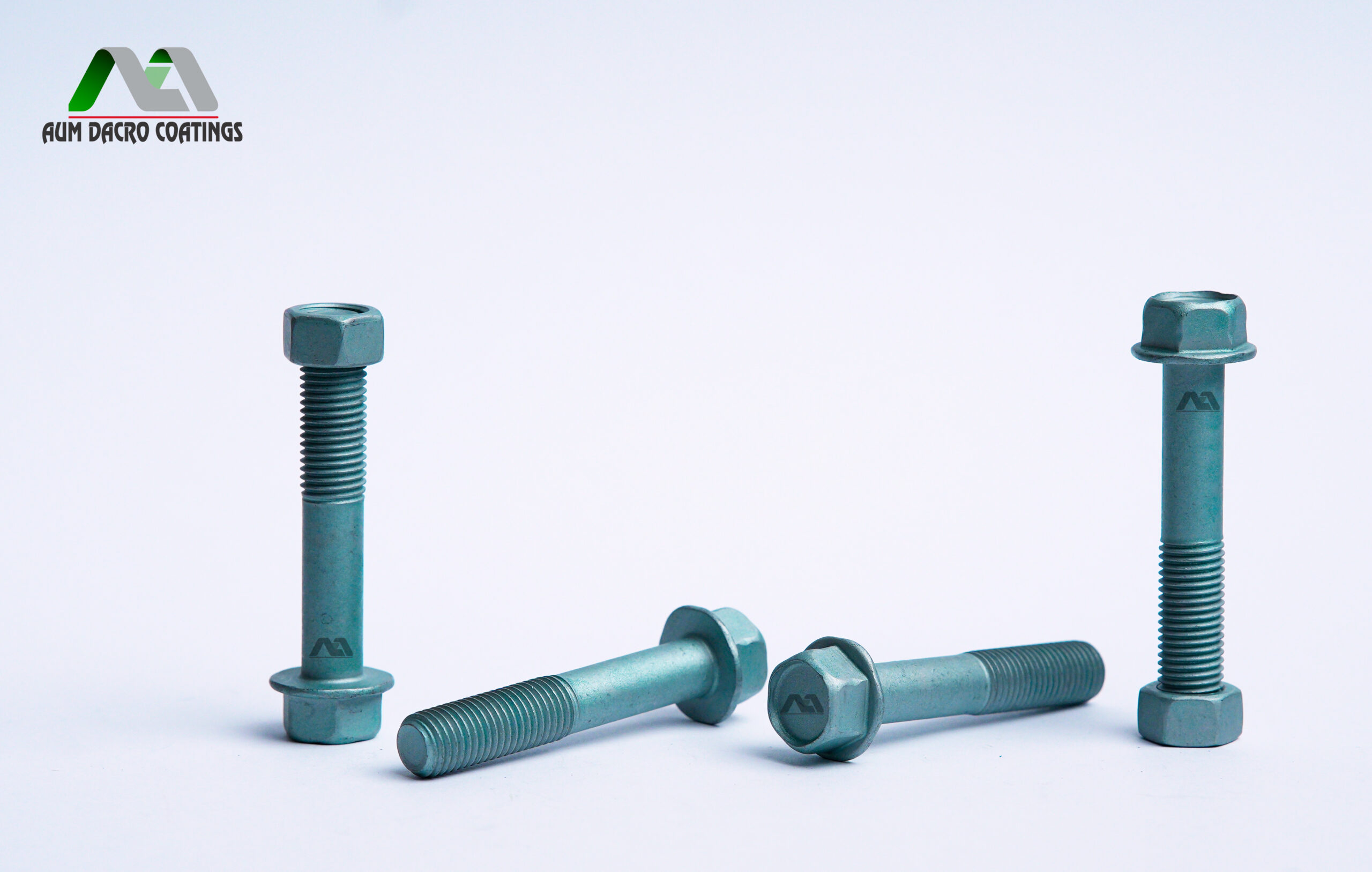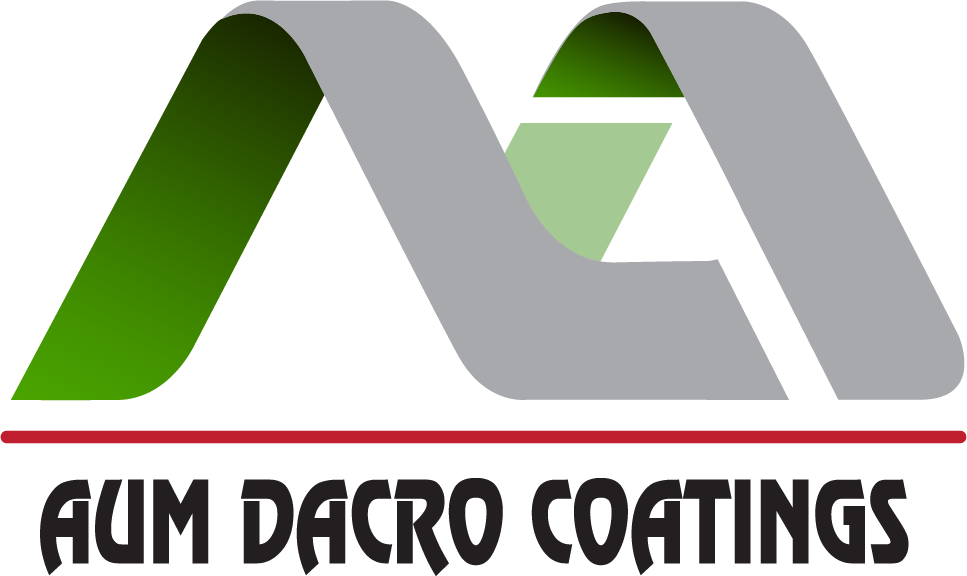Theodore Lowe, Ap #867-859 Sit Rd, Azusa New York
We are available 24/ 7. Call Now. (888) 456-2790 (121) 255-53333 example@domain.comZinc Flake Coatings
We design and develop web and mobile applications for our clients worldwide

Zinc Flake Coatings
Zinc Flake Coatings
Introduction to Zinc Flake Coatings-
Key Benefits of Zinc Flake Coatings
Superior corrosion resistance (up to 1000–2000 hours SST)
Thin coating thickness (5–20 microns)
No risk of hydrogen embrittlement
High chemical and heat resistance (up to 300°C)
Eco-friendly and fully RoHS/REACH compliant
Excellent adhesion for topcoats and lubricants

Geomet Coatings
Introduction to Geomet Coatings
Geomet is a globally trusted, water-based zinc–aluminum flake coating offering exceptional corrosion protection with
extremely thin layers. Used extensively for fasteners, chassis parts, and industrial hardware.
Corrosion Protection
Lubrication
0.12-0.18
(ISO 16047)
Temperature resistance
Electrical properties
Paintability
No hydrogen embrittlement
Temperature resistance
Static friction
Electrical properties
Paintability
No hydrogen embrittlement
Corrosion protection
Temperature resistance
Static friction
Electrical properties
Paintability
No hydrogen embrittlement
SIMPLIFIED TECHNOLOGY with GOOD PERFORMANCE
Characteristics and performance
● Adjustable coefficient of friction thanks to PLUS-family topcoats
● Performance maintained at elevated temperatures (up to 300C) .
● Electrical conductivity for most application
● Bimetallic compatibility with aluminum
● No hydrogen embrittlement
● Paintable coating
Corrosion resistance
Average thickness Salt Spray
Test (ISO 9227)
6 μm
> 72 hours without white rust
> 400 hours without red rust
Application processes
Health and Safety
- ● Aqueous dispersion
- ● Complies with REACHZINCROKOTE® can be applied by Dip-Spin, using bulk or rack coating process
International standards
1000-2000 h
(ISO 9227/ASTM B117/JIS Z2371)
* The standard application of GEOMET® 720HP is 2 coats 2 bakes.
Temperature resistance
Static friction
Electrical properties
Paintability
No hydrogen embrittlement
Processes
BULK DIP/SPIN
ELECTROSTATIC SPRAY
RACK DIP/SPIN
SPRAY
Waterborne zinc flake
2011/65/EU and (EU) 2015/863 – Directive of the European Parliament on the restriction of the use of certain hazardous
substances in electrical and electronic equipment
EN 13858 – Corrosion protection of metals – Non-electrolytically applied zinc flake coatings on iron or steel components
Advantages Over GEOMET®720LS
- ● Lower Film Density: Increased coating thickness (approx. 11%) at the same coating weight.
● Reduced Weight: Decreases material usage, contributing to cost efficiency.
● Improved Corrosion Performance:
○ Outperforms in Cyclic Corrosion Tests (CCT-C, CCT-HB, and CCT-1).
○ Achieves greater longevity under scratched and unscreened conditions.
● Meets Resistance Standards: Oil, water, humidity, and heat resistance are equal or superior to

Delta Coatings: (dorken)
Disclaimer: The Delta coating is carried out at Aum Korro Tech (Unit 4 of the Aum Dacro Coatings Group)
Base coat -
The basecoat is the zinc flake coating that is applied directly to the substrate. It determines the corrosion
protection characteristics of the system, with the zinc making it responsible for the cathodic protection. The
application technology may vary, depending on the component.
Basecoat from DÖRKEN
The basecoats from Dörken have a high level of electrochemical conductivity, thanks to the high zinc flake content. The flakes
are each in electrochemical contact to one another. If the coating is damaged, the zinc sacrifices itself, thereby protecting the
steel surface. All Dörken zinc flake basecoats can be combined with the Dörken topcoats
DELTA®-TONE 9000
DELTA-PROTEKT® KL 100
DELTA-PROTEKT® KL 105
Excellent combination with DELTA®-SEAL-Series Frequently used for springs, hose clamps and stamping parts Very good adhesion and ductility
deally tailored for threaded parts Temperature resistant PFAS free
Integrated lubricant additive for a defined coefficient of friction Ideally tailored for threaded parts Resource efficiency Good protection against white rust High temperature resistance
DELTA-PROTEKT® KL 130
DELTA-PROTEKT® KL 120
DELTA-PROTEKT® KL 170 RT
Dark grey basecoat Ideally suited for black topcoats (avoids silver shimmer)
Suitable for coating of many different components Excellent adhesion Especially high temperature resistance Very good protection against white rust Very good ductility
Room temperature curing zinc flake For industrial coating in the low temperature range Coating of temperature-sensitive components possible PFAS free
Top coat -
DELTA®-SEAL-Series
DELTA-PROTEKT® VL-Series
DELTA-PROTEKT® VH-Series
Solvent-based topcoats
For universal application on various
substrates
Available in a range of colours
Chemical resistance
Partly with in order to fulfil
requirements of friction coefficie
Solvent-based topcoats
For universal application on various
substrates
Developed for special applications
requiring UV- and chemical
resistance
Partly with lubricant additive in
order to fulfil requirements for
friction coefficient
Water-based sealings
Extremely thin layers of 1-5 μm
Suitable for zinc flake, galvanic zinc
coating and zinc alloys
Partly with lubricant additive in
order to fulfil requirements for
friction coefficient
DELTA-COLL®-Series
Special products
Solvent-based sealings
Extremely thin layers of 1-5 μm
Colorless or black
Ideally suited for galvanic zinc
coatings and zinc alloys
Partly with lubricant additive in
order to fulfill requirements for
friction coefficient
Bonding agents
Lubricants
Sliding lacquer
High temperature protection
Zintek® (Atotech)

Superior protection with just one coat:
Key features & Benefits:
- ● Inorganic silver zinc flake base coat
- ● One layer system
- ● Excellent cathodic corrosion protection
- ● Reliable corrosion protection of 720 h NSST with only one coat (6 – 8 μm)
- ● Very good adhesion and wear resistance
- ● Attractive alternative to HDG, multi-layer zinc flake coatings as well as plating finishes
- ● Free of harmful heavy metals such as Cr(VI), cadmium, cobalt, lead or nickel
- ● Combinable with Atotech’s top coats
- ● Reduces operating cost and processing time compared to standard two layer coatings
- ● Increased coating line capacity
APPLICATIONS:
- ● Coating material for dip-spin and rack-spin application
- ● Fasteners like bolts, screws, nuts or clamps
- ● Stamping parts, brake components, chassis parts or springs
The neXT level base coat
Key features & Benefits:
- ● Inorganic silver premium zinc flake base coat
- ● Outstanding cathodic corrosion protection
- ● Exceptional performance in NSST as well as CCT
- ● Excellent delay in white rust formation
- ● Very good adhesion
- ● Attractive silver appearance
- ● No hydrogen embrittlement
- ● Free of harmful heavy metals such as Cr(VI), cadmium, cobalt, lead or nickel
- ● Combinable with Atotech’s Zintek® Top, Techseal® or Techdip® top coats
APPLICATIONS:
- ● Fasteners, springs, clips, brake components
- ● Large chassis and stamping parts
- ● Dip-spin, rack-spin and spray
Thin-layer topcoat for optimal protection
Key features & Benefits:
- ● Water-based inorganic clear top coat
- ● Tremendously boosts corrosion protection
- ● Best-in-class results in NSST as well as cyclic corrosion resistance (CCT)
- ● Outstanding white rust resistance
- ● Very good adhesion
- ● Thin layer application with approx. 1 μm thickness
- ● Moderate curing temperatures
- ● Attractive transparent appearance
- ● Controlled friction properties
- ● Excellent results on zinc flake base coats as well as on electroplated zinc/zinc alloys
APPLICATIONS:
- ● Suitable for dip-spin, rack-spin and spray
- ● Fasteners, springs or clips
- ● Large automotive parts such as chassis or stamping part
The best base for deep black zinc flake surfaces for deep black zinc flake surfaces
Key features & Benefits:
- ● Inorganic black zinc flake base coat
- ● Excellent corrosion protection in combination with Atotech’s top coats
- ● Excellent delay of white corrosion formation
- ● Very good adhesion
- ● Attractive uniform dark appearance
- ● Solvent-based
- ● No hydrogen embrittlement
- ● Free of harmful heavy metals such as Cr(VI), cadmium, cobalt, lead or nickel
APPLICATIONS:
- ● Suitable for dip-spin method
Excellent corrosion resistance with modern black design
Key features & Benefits:
- ● Organic black top coat
- ● Attractive, semi-bright black finish
- ● Excellent corrosion protection
- ● High color stability in combination with a black base coat
- ● Solvent-based with integrated lubricant
- ● Fulfilling the Volkswagen requirements for CoF even after multiple mounting and heat-loosening
- ● High chemical resistance
- ● Excellent handling – lowest abrasion, best adhesion
- ● Approved for Volkswagen TL180
APPLICATIONS:
- ● Suitable for dip-spin and spray
- ● Typically used for any kind of fasteners and other parts
Premium silver zinc flake basecoat A proven and reliable basecoat designed for consistent quality and outstanding protection. Zintek® 200 offers a bright metallic appearance, durable finish, and compatibility with various Techseal® and Zintek® topcoats.
Key features & Benefits:
- ● Inorganic silver premium zinc flake basecoat process
- ● Excellent cathodic corrosion protection
- ● Very good adhesion
- ● Attractive silver appearance
- ● Solvent-based
- ● No hydrogen embrittlement
- ● Free of harmful heavy metals such as Cr(VI), cadmium, cobalt, lead or nickel; non-PFAS version available
- ● Combinable with MKS’ Atotech topcoats
APPLICATIONS:
- ● Appropriate for fasteners, chassis parts, brake components, springs, and clips
- ● The process is suitable for a wide range of applications in the automotive, construction, heavy machinery,
and agriculture industries.
Zinc Flake
PTFE
Zinc
Thermal
Spray
Alkaline Zinc
Alkaline Zinc Nickel
Hot-Dip Galvanizing (HDG)
Electroplating
Thickness
Range
($\mu$m)
Extremely
Low
Coefficient
of Friction
(Non-Stick)
& Excellent
Chemical
Resistance



